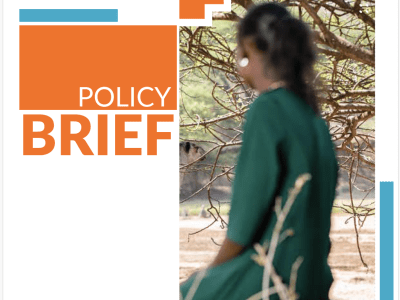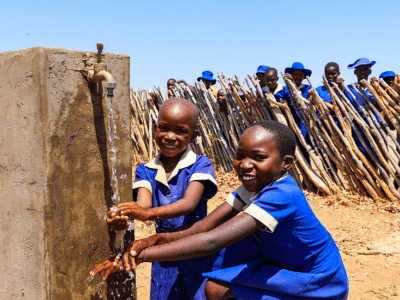publication / February 5, 2026
Myanmar Earthquake | Situation Update | Edition 16
World Vision is deeply concerned for the well-being of children and their families affected by the earthquake: Children are among the most affected, facing increased risks, loss of learning, and urgent protection needs. World Vision is providing life-saving relief assistance to the children and the families affected by the earthquake. We aim to support 500,000 people, including 85,057 boys and 86,902 girls, through both immediate relief and long-term recovery efforts.
video / January 17, 2026
“I Miss My Father”: How Children Are Coping with War in Ukraine
In eastern Ukraine, children find safety, learning, and psychosocial support in World Vision and Arms of Mercy spaces, offering moments of normalcy amid war.
publication / February 4, 2026
Gifts-In-Kind Fiscal Year 2025 Annual Report
The World Vision Zambia Gifts-In-Kind (GIK) Fiscal Year 2025 Annual Report highlights the transformative power of non-cash donations in advancing the well-being of the nation’s most vulnerable children. Throughout the year, the program strategically integrated high-value goods, ranging from essential medical equipment to educational materials and mobility aids, into its core technical programs.
press release / November 20, 2025
World Children’s Day Statement : My Day, My Rights
On this World Children’s Day, we urge governments, regional bodies, civil society, private sector, and communities to join us in fortifying the mission on turning commitments into action. Let every child, not just today but every day, confidently say: “My Day, My Rights!” because every child matters and every right
article / January 28, 2026
Keeping Children’s Hope Alive Through Sponsorship: Stephen’s Path to Purpose.
World Vision has constructed classroom blocks and provided scholastic materials. Many children are now close to completing their studies and received support to pursue vocational training and have been supported with income-generating activities, helping them build a more secure future.
publication / February 4, 2026
East Africa Region Policy Brief on Ending Female Genital Mutilation (FGM) 2023
World Vision is influencing the adoption and implementation of policies relating to FGM in Kenya, Sudan, Somalia and Sudan. The policy brief highlights strategic policy recommendations targeting national governments, regional institutions donors faith and community leaders.
article / February 3, 2026
Clean Water, Happy Learners: Gampakalala Primary’s Journey to Hygiene and Hope
With clean, reliable water now accessible, Gampakalala Primary School has entered a new chapter, one of hope, dignity and joy for both learners and the wider community.
publication / November 13, 2025
Empowering CHWs in Myanmar - Bridging Health Gaps Presentation
World Vision strengthened 879 CHWs to expand primary health care and improve maternal and child nutrition in fragile communities in Myanmar.
article / January 19, 2026
Leading with Purpose: A New Chapter for World Vision in the Pacific
Asuntha Charles takes the lead as National Director for World Vision in Solomon Islands and Vanuatu. Discover her bold vision for 2026, rooted in local resilience, courage, and hope for every child.







